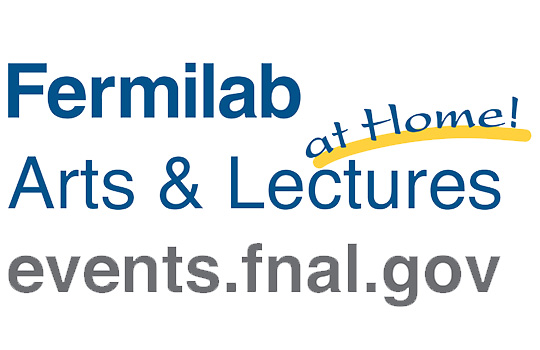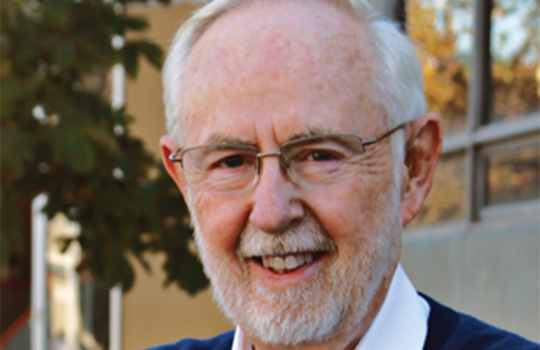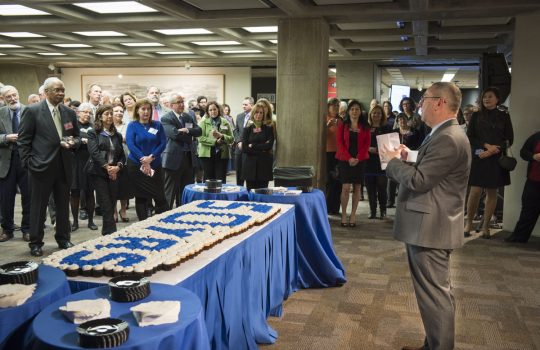BATAVIA, Illinois—Some of the hottest topics in the field of physics today, ranging from “Dark Energy and the Runaway Universe,” to “The Warpings of Spacetime” and “The Coming Revolutions in Particle Physics,” will energize the World Year of Physics Symposium for Students and Teachers, to be held on Saturday, October 8, 2005 in Ramsey Auditorium at the Department of Energy’s Fermilab.
Nobel Laureate Leon Lederman of the Illinois Math and Science Academy will offer a talk in his inimitable style, and new Fermilab Director Pier Oddone will speak on “The Future of Fermilab.”
The World Year of Physics is an international celebration of the 100th anniversary of Albert Einstein’s “miracle year” of 1905, when he published the papers on quantum physics, relativity and other phenomena that forever changed our view the universe. “The year is a celebration of the Einstein centennial,” said Fermilab theoretical physicist and symposium co-organizer Chris Quigg, “but it is also a celebration of the physics of our era and the continuing influence of Einstein. All our speakers are coming with great enthusiasm, and they are eager to address this interesting mix of an audience.”
The symposium is geared for teachers, for students of high school age and up, and for members of the public with an interest in science. Students of Fermilab’s Saturday Morning Physics are invited to attend, as are participants (past and present) in the QuarkNet program of the Fermilab Education Office. Tickets are $5 and registration is available through the website http://www-ed.fnal.gov/wyop or by telephoning Nancy Lanning at 630-840-5588. A continental breakfast will be available, with refreshments served during breaks throughout the day. Scientists from Fermilab’s Ask-a-Scientist program will be available to answer questions during breaks and after presentations.
The invited speakers are high-energy scientists who place high values on education. John Rigden (talk entitled “1905: Einstein’s Year”) of Washington University in St. Louis has served as editor-in-chief of the four-volume Macmillan Encyclopedia of Physics, and is the author of several books including Einstein 1905: the Standard of Greatness. Alex Fillipenko of the University of California at Berkeley (“Dark Energy and the Runaway Universe”) is a member of the High-Redshift Supernova Search Team, whose co-discovery of the accelerated expansion of the universe was voted the top scientific breakthrough of 1998 by the editors of Science magazine.
Niki Saoulidou of Fermilab (“Neutrinos: Past, Present and Future”) is a neutrino researcher currently working on the Main Injector Oscillation Search (MINOS) experiment, sending a beam of neutrinos through the earth to a detector 732 km away, located in a former iron mine a half-mile below the surface in Soudan, Minnesota. Sean Carroll, of the Enrico Fermi Institute and the Kavli Center for Cosmological Physics at the University of Chicago (“The Warpings of Spacetime”), has received the MIT Graduate Student Council Teaching Award and has written a graduate textbook, Spacetime and Geometry: An Introduction to General Relativity. Randy Hulet of Rice University (“Bose-Einstein Condensation of Very Cold Atoms”) is currently focused on research interest in ultracold atomic and molecular physics. Chris Quigg of Fermilab (“The Coming Revolutions in Particle Physics”) has held visiting appointments at École Normale Supérieure in Paris, Cornell University and Princeton University; and as Erwin Schrödinger Professor at the University of Vienna.
Visit the Web page at http://www-ed.fnal.gov/wyop
Fermilab is a U.S. Department of Energy Office of Science national laboratory, operated under contract by Universities Research Association, Inc.



